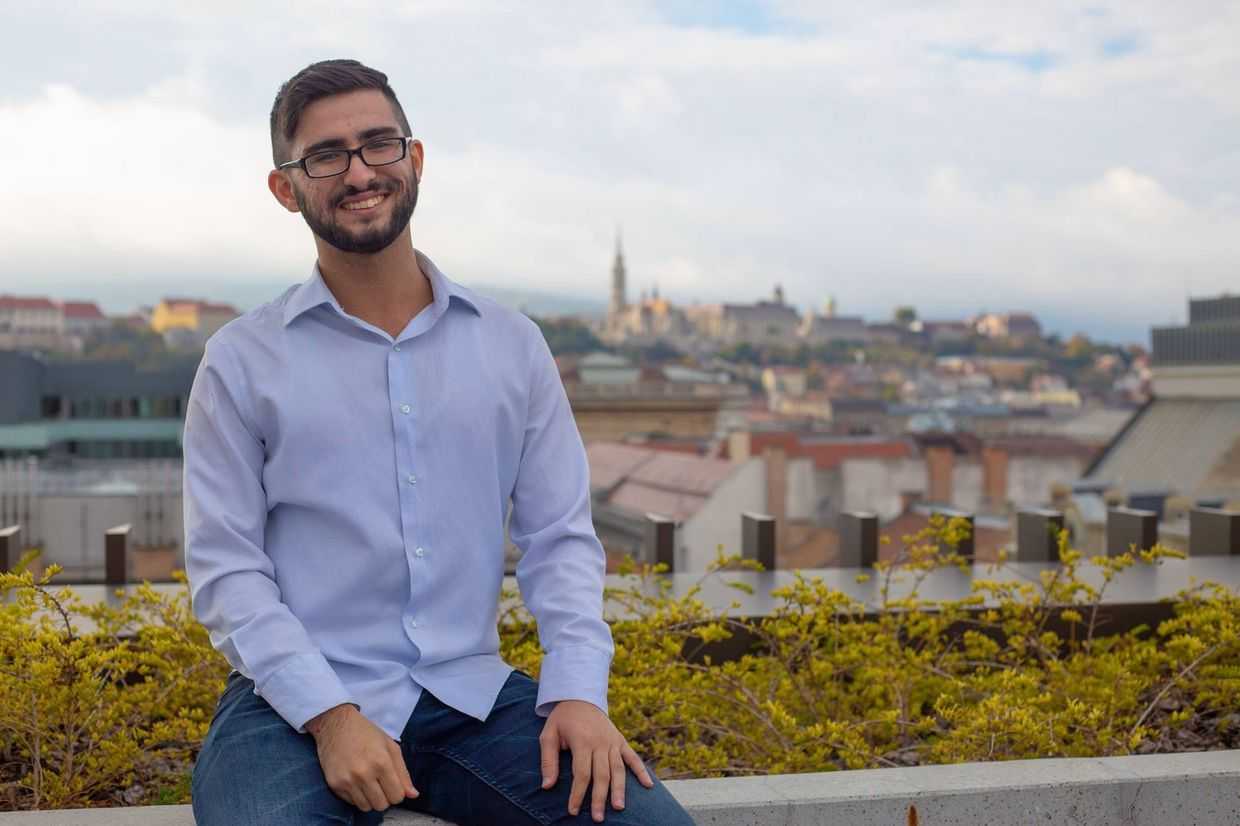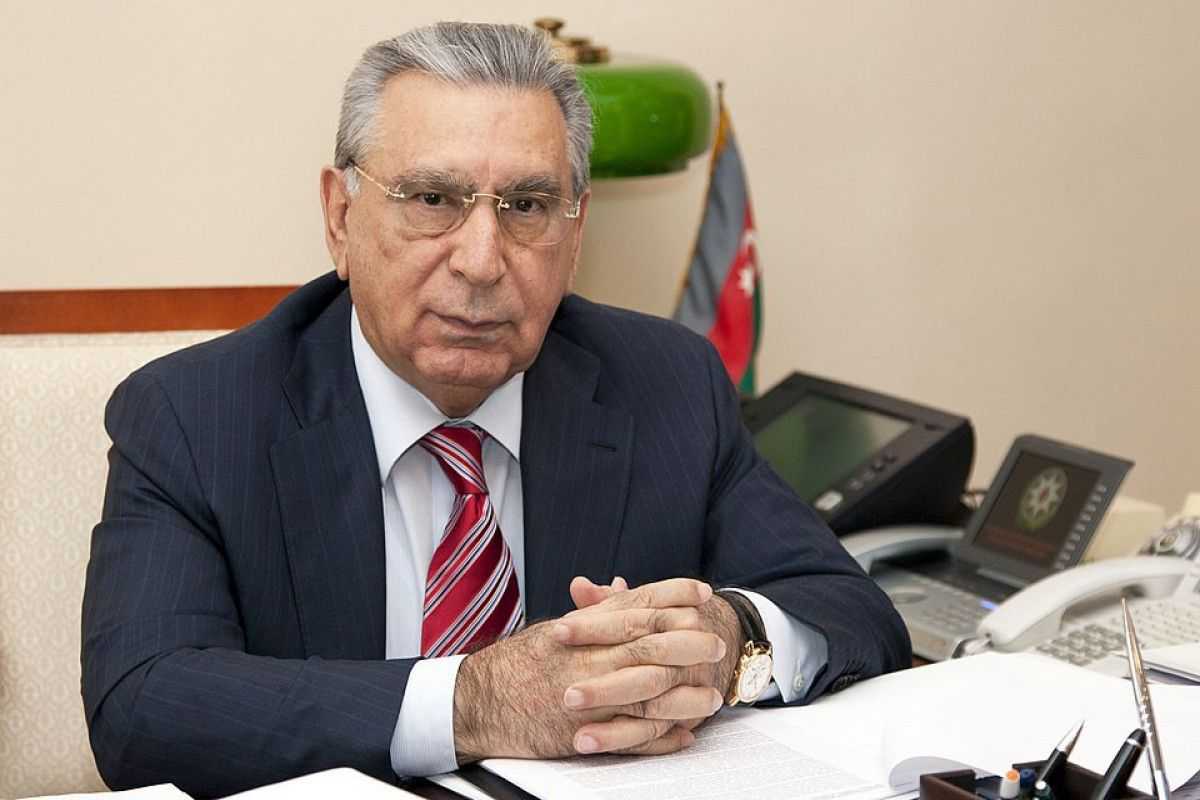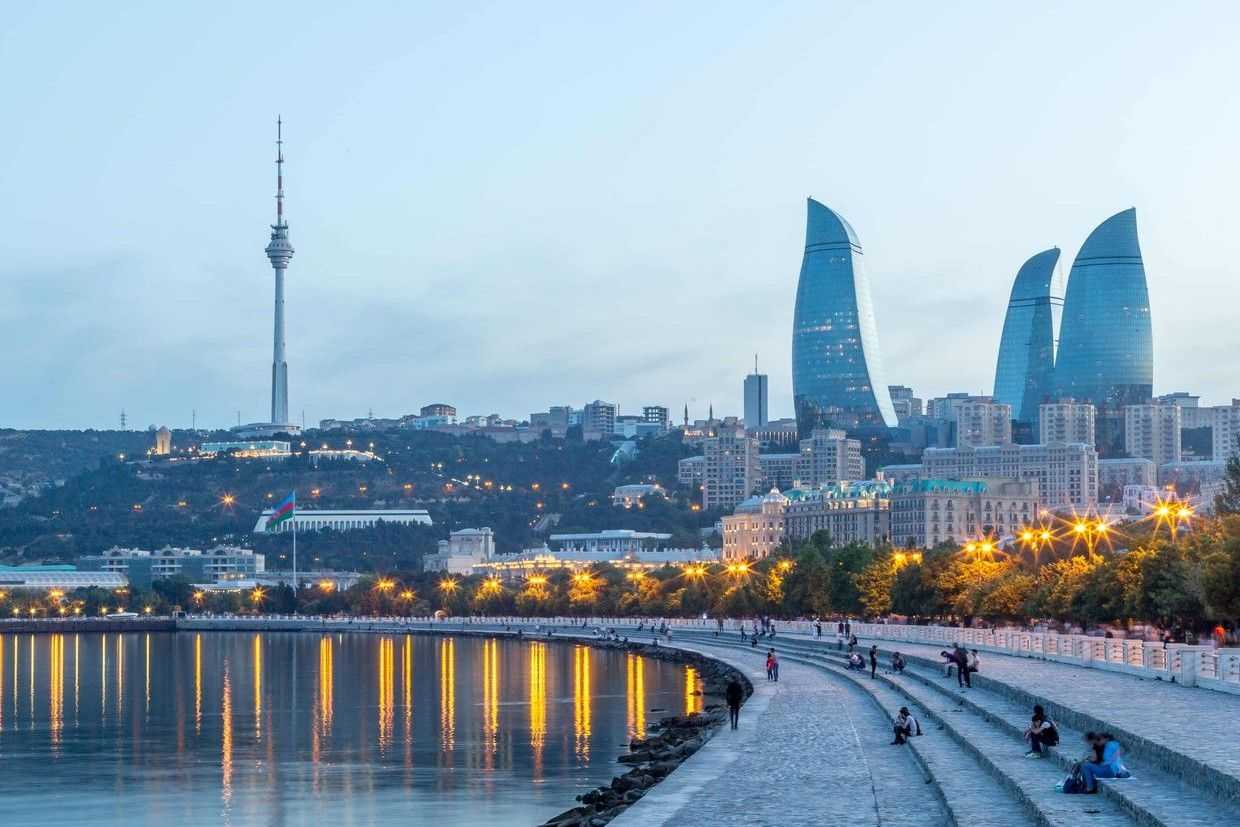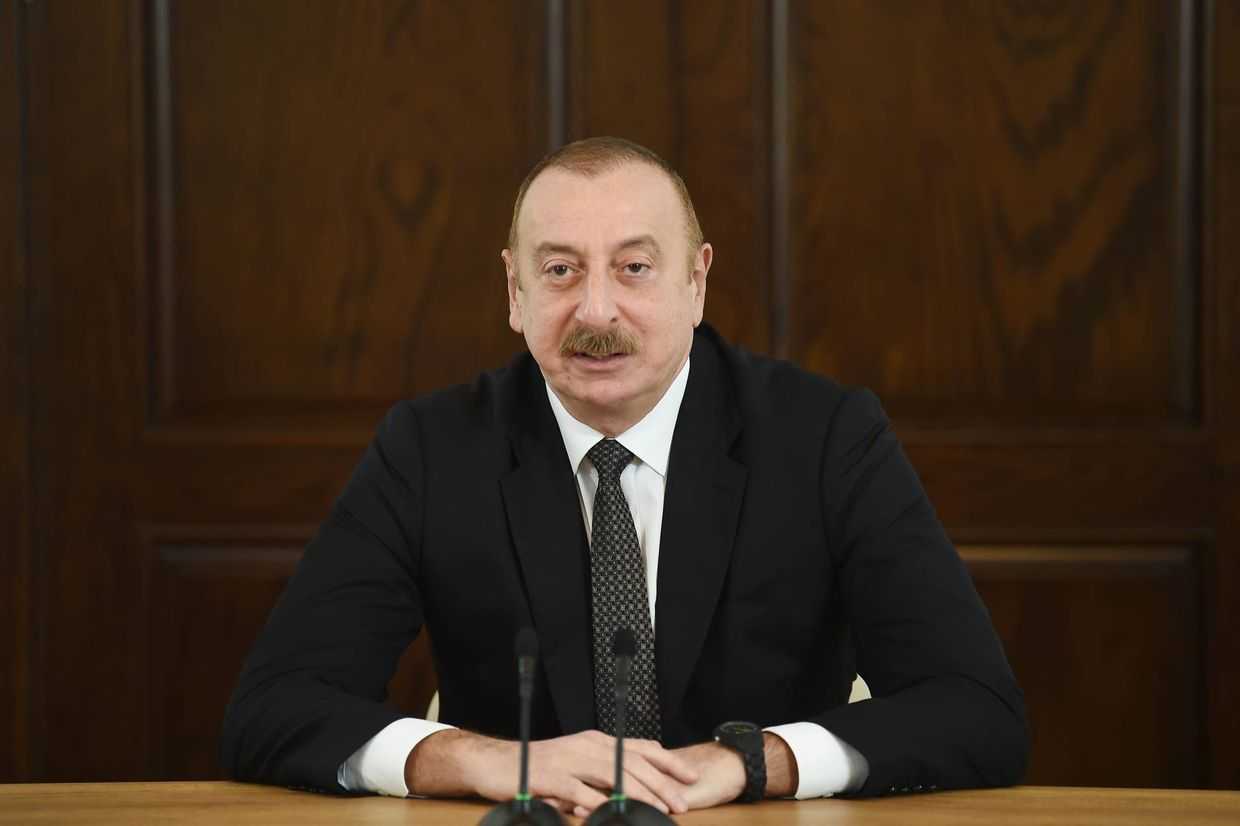
Huseyn Abdullayev, an Azerbaijani student held for a month by Russian troops, tells of daily abuse, torture, and apparent extrajudicial executions.
On 17 March, 19-year-old Huseyn Abdullayev was heading west in a car with seven other passengers. They were fleeing the Ukrainian port city of Mariupol, which had been besieged by the Russian military since 25 February.
‘We passed several military checkpoints, and when we approached the checkpoint in Berdiansk we were stopped’, he told OC Media. ‘The driver of the car was Ukrainian. The Russian soldiers who stopped us ordered us to get out of the car and take off our clothes.’
The soldiers told them they wanted to check if anyone in the car had tattoos. Tattoos supposedly indicated that the person in question was a member of the Azov Battalion. The battalion, currently a unit of the Ukrainian national guard, originated as a far-right white supremacist militia and has featured prominently in Russian war propaganda. Of the seven people in the car, Abdullayev said, none had tattoos except for the driver, who had the cancer zodiac sign inked on his leg.
The soldiers kept them at the checkpoint for a long time, the hours punctuated by the sound of shells and gunfire from the not-too-distant frontline.
Eventually, a truck arrived at the checkpoint, and roughly two dozen soldiers got out. The men, who looked to be of ‘Central Asian descent’ questioned the passengers, demanding to know who they were and where they were going.
‘Even though I showed them my student ID and passport, they hit me several times in the chest and legs and dragged me to their vehicle’, Abdullayev said.
For the next 26 days, the teenager who had come from Azerbaijan to Mariupol three years before to study ecology at Mariupol State University endured interrogation, torture, and abuse at the hands of the Russian military — and witnessed what appear to be at least two instances of extra-judicial executions of Ukrainian captives.
‘You are a member of the Azov Battalion’
The drive from the checkpoint lasted a little more than half an hour. Upon their arrival, Abdullayev and the other passengers were again questioned by the Russian military. Many of the soldiers appeared to be Chechen, speaking Russian with Chechen and sporting long beards, with closely cropped moustaches — a typical style worn by members of the Russian National Guard from Chechnya.
But one was different. The others referred to him as ‘Nachalnik’ — ‘Boss’ in Russian. He was short, stocky, and had a beard closely cropped to his face.
‘I was asked what I do, I said that I have been a student for three years, but they did not believe me’, Abdullayev recalled of his arrival at the detention centre. He said that they told him they didn’t believe him and told him he was deceiving them and looked like ‘a gunman’ that he was a ‘member of Azov’.
‘No matter how much I swore to God [that I was a student], they did not believe me and they put me in a cell with the seven people who came with us’, he explained.
The cell was bare and ‘unimaginably cold’, and the detainees, still stripped of their clothing, were forced to stand on frigid bare concrete. Several hours later a soldier opened the cell door, with Abdullayev’s clothing in hand.
‘Now you can put on your clothes’, Abdullayev remembers the soldier telling him, after which he was blindfolded and taken to another cell.
When the blindfold was taken off, the young student found himself face to face with another soldier, apparently a Chechen. The soldier told him to strip once more and sit in a chair. He complied. The soldier then handcuffed him to his seat.
‘He repeatedly shouted at me, asking questions like “when did you join Azov; where did you fight?”,’ Abdullayev said. ‘He did not believe me, despite the fact that each time I told him that I was just a student and that I was leaving [Mariupol] for Azerbaijan.’
Then, as the interrogation appeared to loop back on itself — a glimmer of hope.
‘They said that an Azerbaijani was coming. I thought that another Azerbaijani would understand me and help me to express my opinion and end this torture.’
But the moment the new soldier walked in, he began to hit Abdullayev and shout obscenities at him.
‘You have sullied the honour of our nation, what are you doing in the Azov Battalion!?’ Abdullayev recalls the soldier shouting. ‘Later I realised he was an [ethnic] Azerbaijani Russian soldier born in Derbent.’
Seemingly displeased with his captive’s apparent lack of cooperation, Abdullayev remembers the man then ordered other soldiers in the room to ‘bring the electric device’.
The device was a rectangular box connected to a power supply, which the soldiers connected to the 19-year-old with wires. Three times, Abdullayev said, they asked him to ‘confess everything’ and when he did not they would shock him, each a higher voltage than the last.
When, after the third shock, he fainted, he awoke only when the soldiers splashed cold water in his face.
‘I prayed to God that at least the day would end, maybe they would get tired, sleep would come, and I would be rid of the torture for a few hours. But no, they had no intention of giving up.’
The torture continued for hours until Huseyn Abdullayev could ‘feel blood coming out from [his] ears’. The whole time, he recalled, they demanded only one thing, that he confess to fighting with the Azov Battalion — telling him that if he did, he would be released.
‘I was beaten and tortured for about four to five hours a day. I waited in the cold for hours. They gave me about two tablespoons of buckwheat and less than half a slice of bread during the day. As for the water, I don’t know exactly whether it was mud or not, but it was black and they gave me half a glass of it during the day.’
‘Happy birthday’
On the fourth day of his captivity, one of the soldiers put a gun to his head, while the Azerbaijani soldier told Abdullayev to utter the Shahadat, the Islamic declaration of faith, which is also uttered at the moment before death.
‘[He] then put his gun against my knee, saying that he would humiliate and cripple me’, Abdullayev recalled. ‘They had fun with me this way for a few minutes and then took me back to my cell.’
Not everyone returned from the torture room.
Abdullayev told OC Media that on the second day, two men wearing the uniforms of the Ukrainian military were brought to a cell across from Abdullayev’s. He and the other cell mates could communicate with the two Ukrainians by talking through the little barred window on the cell door. A few days after they were brought, he said he saw the two men forced out of the cell, and just a little later, remembers hearing the sounds of gunshots. He never saw the two men again.
On 21 March, the fifth day of his captivity, Huseyn Abdullayev turned 20 years old.
That day, a soldier greeted him with a smile and the words ‘happy birthday’.
‘I thought for a moment that they had come to their senses and softened’, Abdulalyev said. ‘Less than a minute later, the door opened and they came and grabbed me by the arms and took me back to the torture room.’
He and the men he shared his cell with were tortured every day — each in turn for about ‘three or four hours a day’.
‘I am certain that everything was very clear and obvious to our captives. They understood very well from the first day that I was a student’, Abdullayev said. ‘I can only assure you that we were tortured and beaten one by one just [for our captors] to be free from loneliness and to have fun.’
In spite of the acts they were perpetrating, Abdullayev said he witnessed his captors sing songs and dance. When they felt particularly enthused, he said those of apparent Chechen origin would exclaim ‘Akhmat Sila!’ ( ‘Akhmat Power!’) — a refrain popularised by the despotic head of the Republic of Chechnya, Ramzan Kadyrov.
The exclamation references Ramzan’s late father Akhmat Kadyrov and is often heard in videos featuring Chechen units of the Russian National Guard fighting in Ukraine.
A phone call to freedom
On 12 April, nearly one month since he was first detained, Huseyn Abdullayev was taken out of his cell for the last time.
‘I thought I was going to get tortured’, he recalled, ‘but when I least expected it, the guard said: “get ready, you’ll be out soon”.’
A little while later he was approached by several Chechen soldiers, who, after looking him over he remembers telling him that they were releasing him because it was ‘the holy month of Ramadan’. He was the only one to be treated to this privilege, the other six passengers from the car would remain in captivity.
Abdullayev was taken back to the Berdiansk checkpoint where he was first detained and told he was free to go. But before he was released, he was approached by Nachalnik, who handed him an old cellphone. ‘If they stop you on the road or at a checkpoint, call me’, Abdullayev said the man told him, before adding that he should also call his friend Aykhan Hajibayli, who was apparently waiting for him in the Ukrainian-controlled city of Zaporizhzhya.
When he unlocked the phone — sure enough — there they were. Two numbers. One, apparently that of Nachalnik, and the other that of Hajibayli, who he had studied with back in Mariupol. Why the Russians had his friend’s number, he was too tired and too hurt to think about.
It would only be later, once he was already safe that he would find out what happened. After his disappearance, Hajibayli tried to call him and find out what had happened and Nachalnik had picked up the phone.
Hajibayli told OC Media that for over twenty days he and another Azerbaijani student from Mariupol State University corresponded with Nachalnik, using their common Muslim faith and the fact that it was Ramadan to establish rapport and keep him in contact.
‘We were able to explain to the Chechen military that Hussein was indeed a student and had nothing to do with political or military issues’, Hajibayli explained.
Huseyn Abdullayev arrived in Zaporizhzhia on 13 April, having hitchhiked from the checkpoint where he was released.
‘The smile on Huseyn’s face, the excitement, cannot be described’, Hajibayli recalls of their reunion. ‘We hugged each other and he told me, with joy that he thought he would never be able to speak my own language, that he would never be able to hug his friends again.
‘I am the freest and happiest person in the world’, Hajibayli remembers his friend crying out.









